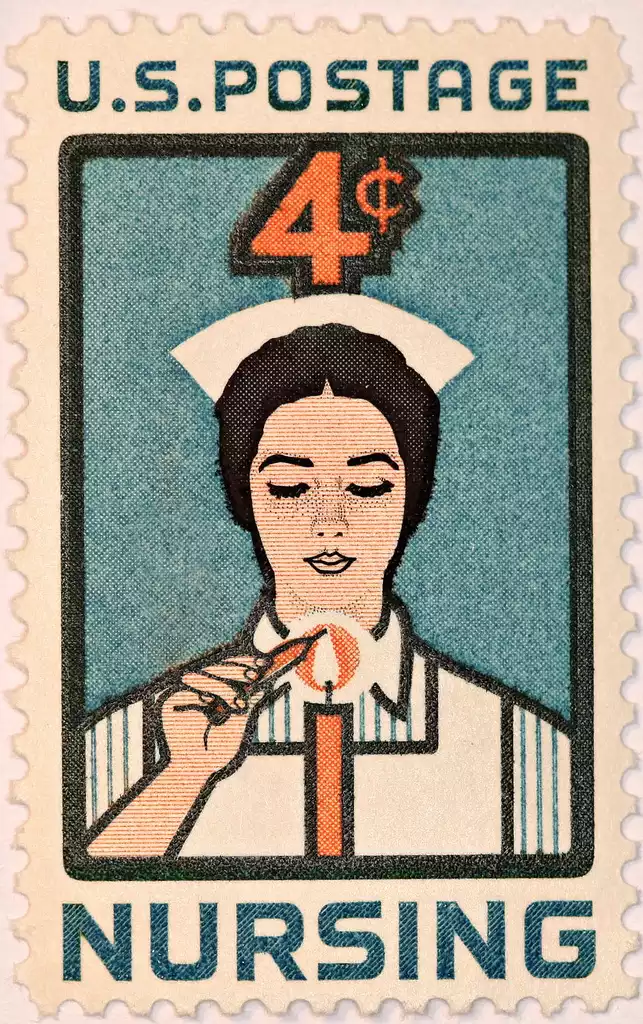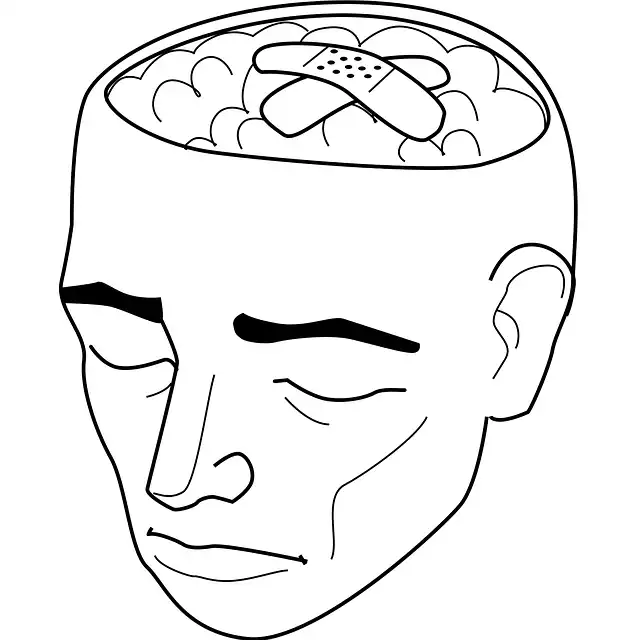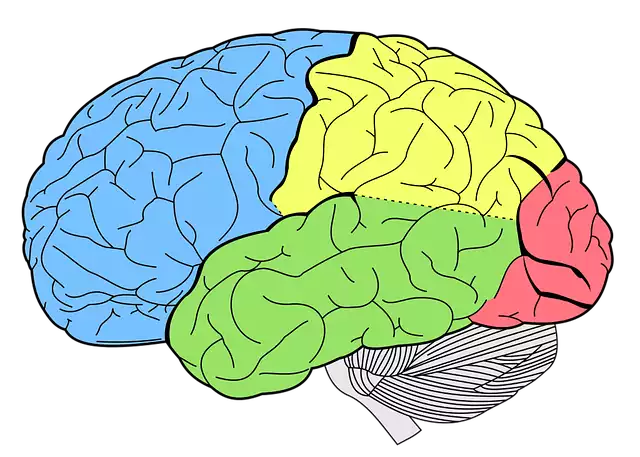Nursing Mental Health
In the quiet corridors of long-term care facilities and the bustling wards of hospitals, a specialized field of nursing thrives, dedicated to an often-overlooked population: older adults with mental health needs.
Geropsychiatric and Mental Health Nursing is not merely a convergence of geriatrics and psychiatry but a nuanced discipline that addresses the unique psychological challenges faced by aging individuals.
Imagine being at the frontline where empathy meets expertise, where every interaction potentially transforms despair into hope.
As our global population ages at an unprecedented rate, the demand for skilled geropsychiatric nurses has never been more critical.
These professionals are equipped with distinct competencies to navigate complex conditions such as dementia, depression, and anxiety in geriatric patients.
They play pivotal roles in enhancing quality of life through personalized care plans that encompass both medical interventions and emotional support.
This article delves into the indispensable role these nurses play in healthcare landscapes worldwide, highlighting their contributions to improving mental health outcomes for our senior citizens.
Geropsychiatric and Nursing Mental Health is a specialized field of nursing that focuses on the care and treatment of older adults with mental health disorders.
As the population continues to age, there has been an increasing demand for healthcare professionals who are knowledgeable and trained in providing comprehensive mental health care to the elderly.
Geropsychiatric and mental health nurses play a crucial role in addressing the unique and complex needs of older adults, as they are more susceptible to developing mental health conditions due to factors such as physical decline, chronic illnesses, loss of independence, and social isolation.
These nurses possess a unique set of skills and knowledge that allows them to effectively assess, diagnose, and manage mental health disorders in older adults, while also providing compassionate and holistic care.
In this article, we will delve deeper into the field of geropsychiatric and mental health nursing, exploring its history, role in the healthcare system, and the challenges and opportunities faced by nurses in this specialty.
We will also discuss the various interventions and approaches used by these nurses to promote the mental well-being of older adults and enhance their quality of life.
Table of Contents Nursing Mental Health
Understanding Geropsychiatric Care for Seniors
Providing optimal geropsychiatric care for seniors requires a comprehensive understanding of their unique mental health needs and challenges.
With the aging population on the rise, healthcare professionals specializing in geropsychiatric and mental health nursing play a crucial role in ensuring the well-being of older adults.
Effective care involves a holistic approach that considers not only the physical symptoms and medical conditions but also the psychological and social factors that impact the mental health of seniors.
This approach recognizes that mental health issues among the elderly are often intertwined with the complexities of aging, such as chronic illnesses, cognitive decline, loss of independence, and social isolation.
Geropsychiatric and mental health nurses employ evidence-based practices, therapeutic interventions, and compassionate care to support seniors in maintaining their mental well-being and quality of life.
By promoting emotional resilience, providing appropriate interventions, and fostering a supportive environment, these specialized nurses contribute to the overall enhancement of geriatric mental health outcomes.
The Role of Mental Health Nurses
Geropsychiatric and mental health nurses play a pivotal role in the comprehensive care of older adults who are facing mental health challenges.
These specialized professionals possess a deep understanding of the unique psychological and emotional needs of the elderly population.
In the field of geropsychiatric and mental health nursing, their primary responsibilities include conducting thorough assessments to identify mental health issues, developing individualized care plans, and implementing evidence-based interventions to promote optimal mental well-being.
They provide counseling, therapy, and support for seniors struggling with conditions such as depression, anxiety, and cognitive decline.
Moreover, these nurses collaborate closely with interdisciplinary teams to ensure holistic care and address the social determinants of mental health.
By advocating for the mental health needs of older adults and fostering a therapeutic environment, geropsychiatric and mental health nurses greatly contribute to enhancing the overall quality of life for this vulnerable population.
Addressing Psychiatric Disorders in Elderly Patients
In the realm of geropsychiatric and mental health nursing, addressing psychiatric disorders in elderly patients requires a comprehensive and individualized approach.
As older adults may experience a range of mental health conditions such as dementia, depression, and late-life psychosis, it is crucial for nurses to conduct thorough assessments to accurately diagnose and understand the unique challenges faced by each patient.
With this knowledge, geropsychiatric and mental health nurses can work collaboratively with interdisciplinary teams to design and implement targeted treatment plans that incorporate evidence-based interventions.
This may include medication management, cognitive-behavioral therapy, and psychosocial interventions aimed at improving emotional well-being and overall quality of life for elderly patients.
By providing compassionate and tailored care, geropsychiatric and mental health nurses can make a significant impact in addressing psychiatric disorders in this vulnerable population.
Strategies for Effective Communication with Seniors
When working with elderly patients in geropsychiatric and mental health nursing, effective communication plays a crucial role in establishing trust, understanding, and promoting positive outcomes.
To ensure successful communication, nurses should employ strategies that take into account the unique needs and characteristics of seniors.
One important strategy is to speak clearly and slowly, using simple and concise language to enhance comprehension.
Additionally, it is essential to maintain eye contact and actively listen to patients, allowing them to express their thoughts and concerns fully.
Non-verbal communication, such as gestures and facial expressions, can also be used to convey empathy and support.
Furthermore, nurses should demonstrate patience, respecting the individual’s pace and allowing extra time for them to process information and respond.
By employing these strategies, geropsychiatric and mental health nurses can foster effective communication and ultimately enhance the quality of care provided to older adults.
Balancing Medication and Therapy in Treatment
In the field of geropsychiatric and mental health nursing, balancing medication and therapy is a critical aspect of treatment for elderly patients.
While medication can be effective in managing symptoms and stabilizing mental health conditions, therapy plays a complementary role in addressing underlying issues and promoting long-term well-being.
It is essential for nurses to collaborate closely with other healthcare professionals, such as psychiatrists and psychotherapists, to develop comprehensive treatment plans that integrate both medication and therapy.
This approach ensures that patients receive the benefits of pharmacological intervention while also addressing the emotional, psychological, and social factors that contribute to their mental health challenges.
By striking a balance between medication and therapy, geropsychiatric and mental health nurses can optimize treatment outcomes and improve the overall quality of care for their elderly patients.
Helping Seniors Maintain Independence and Dignity
Promoting independence and preserving dignity are fundamental goals when providing geropsychiatric and mental health nursing care to seniors.
This involves creating a supportive environment that empowers older adults to maintain control and autonomy in their daily lives.
Nurses play a crucial role in facilitating independence by assessing individual capabilities and tailoring interventions accordingly.
This may include implementing strategies to enhance mobility, assisting with activities of daily living, promoting social engagement, and offering emotional support.
By fostering a sense of independence, seniors are not only able to maintain their self-esteem and sense of identity, but also experience improved overall well-being.
Respecting and honoring their choices and preferences is essential in preserving their dignity and affirming their worth as individuals.
Through comprehensive and compassionate care, geropsychiatric and mental health nurses can empower seniors to live fulfilling lives while embracing their independence and dignity.
Supporting Families and Caregivers of Elderly Patients
Family members and caregivers of elderly patients play a vital role in the overall well-being and quality of life of their loved ones.
Recognizing the challenges they face, geropsychiatric and mental health nursing professionals also extend support to these individuals.
By offering education, resources, and guidance, nurses can help families and caregivers navigate the complex landscape of caring for an aging loved one.
This may involve providing information on available community services, assisting with care coordination, and offering emotional support to alleviate the stress and emotional burden that often accompany caregiving responsibilities.
Additionally, nurses can facilitate communication and collaboration between healthcare providers and family caregivers, ensuring a holistic approach to the elderly patient’s care.
By recognizing and addressing the needs of families and caregivers, geropsychiatric and mental health nursing professionals can contribute to the overall well-being and resilience of both the elderly patient and their support network.
Staying Informed on Changing Policies and Practices
It is essential for geropsychiatric and mental health nursing professionals to stay informed on changing policies and practices within their field.
As the healthcare landscape continues to evolve, new guidelines and protocols are constantly being introduced to improve patient care and outcomes.
By staying up-to-date with these changes, nurses can ensure that they are providing the most current and evidence-based care to their elderly patients.
This includes regularly reviewing literature, attending professional conferences and workshops, and actively participating in relevant professional organizations.
Additionally, staying informed allows nurses to advocate for necessary policy changes and contribute to the advancement of geropsychiatric and mental health nursing as a whole.
By prioritizing continuous learning and staying informed, nurses can effectively adapt their practice and provide the highest level of care to their patients.
In conclusion, geropsychiatric and mental health nursing is a critical and evolving field that requires specialized knowledge, skills, and compassion.
As the population continues to age, the demand for competent and compassionate geropsychiatric nurses will only continue to grow.
It is crucial for nurses to stay updated on the latest research and best practices in this field, as well as to continuously cultivate a deep understanding and empathy for the unique needs of older adults.
By prioritizing the mental health and well-being of our aging population, we can help promote overall health and quality of life for this vulnerable and valuable group.
FAQ
How do geropsychiatric nurses assess and address mental health issues in elderly patients?
Geropsychiatric nurses assess mental health issues in elderly patients by conducting thorough evaluations, including physical and mental health assessments, medical history review, and cognitive screenings.
They address these issues through a combination of medication management, therapy, and lifestyle modifications tailored to the individual’s needs.
Additionally, they collaborate with other healthcare professionals, family members, and caregivers to create comprehensive care plans that promote mental well-being in elderly patients.
What are common mental health disorders that affect the elderly population, and how do geropsychiatric nurses differentiate between normal aging and symptoms of mental illness?
Common mental health disorders in the elderly include depression, anxiety, dementia, and substance abuse.
Geropsychiatric nurses differentiate between normal aging and mental illness by assessing changes in behavior, cognition, mood, and daily functioning.
They use validated screening tools, clinical interviews, and observations to identify symptoms that go beyond typical aging-related changes.
Additionally, they consider the duration, severity, and impact of symptoms on the individual’s overall well-being.
Through comprehensive assessments and specialized training, geropsychiatric nurses can effectively distinguish between normal aging and mental health disorders in the elderly population.
How do geropsychiatric nurses collaborate with other healthcare professionals to provide comprehensive care for elderly patients with mental health needs?
Geropsychiatric nurses collaborate with other healthcare professionals, such as psychiatrists, social workers, and primary care physicians, to develop personalized care plans for elderly patients with mental health needs.
They work together to assess the patient’s mental health status, coordinate treatment strategies, monitor medication adherence, provide emotional support, and ensure a holistic approach to care that addresses both physical and psychological needs.
By working as a multidisciplinary team, geropsychiatric nurses can provide comprehensive and effective care for elderly patients with mental health conditions.
What are some challenges faced by geropsychiatric nurses when caring for elderly patients with mental health issues, and how do they overcome these challenges?
Geropsychiatric nurses face challenges such as communication barriers, complex medical conditions, cognitive impairment, and behavioral disturbances in elderly patients with mental health issues.
To overcome these challenges, they use effective communication techniques, incorporate person-centered care, involve family members in care planning, provide a safe and calming environment, utilize therapeutic interventions tailored to the individual’s needs, and work collaboratively with a multidisciplinary team to address all aspects of the patient’s well-being.
Additionally, ongoing training and education help nurses stay informed about best practices in geropsychiatric care.
How do geropsychiatric nurses promote mental health and well-being in elderly patients through therapeutic interventions and support services?
Geropsychiatric nurses promote mental health and well-being in elderly patients by providing individualized therapy sessions, medication management, and cognitive behavioral interventions.
They also offer support services such as group therapy, family education, and caregiver support to enhance social and emotional well-being.
Through their expertise in understanding the unique needs of older adults, geropsychiatric nurses play a crucial role in improving the mental health outcomes of elderly patients and ensuring a higher quality of life in their later years.







